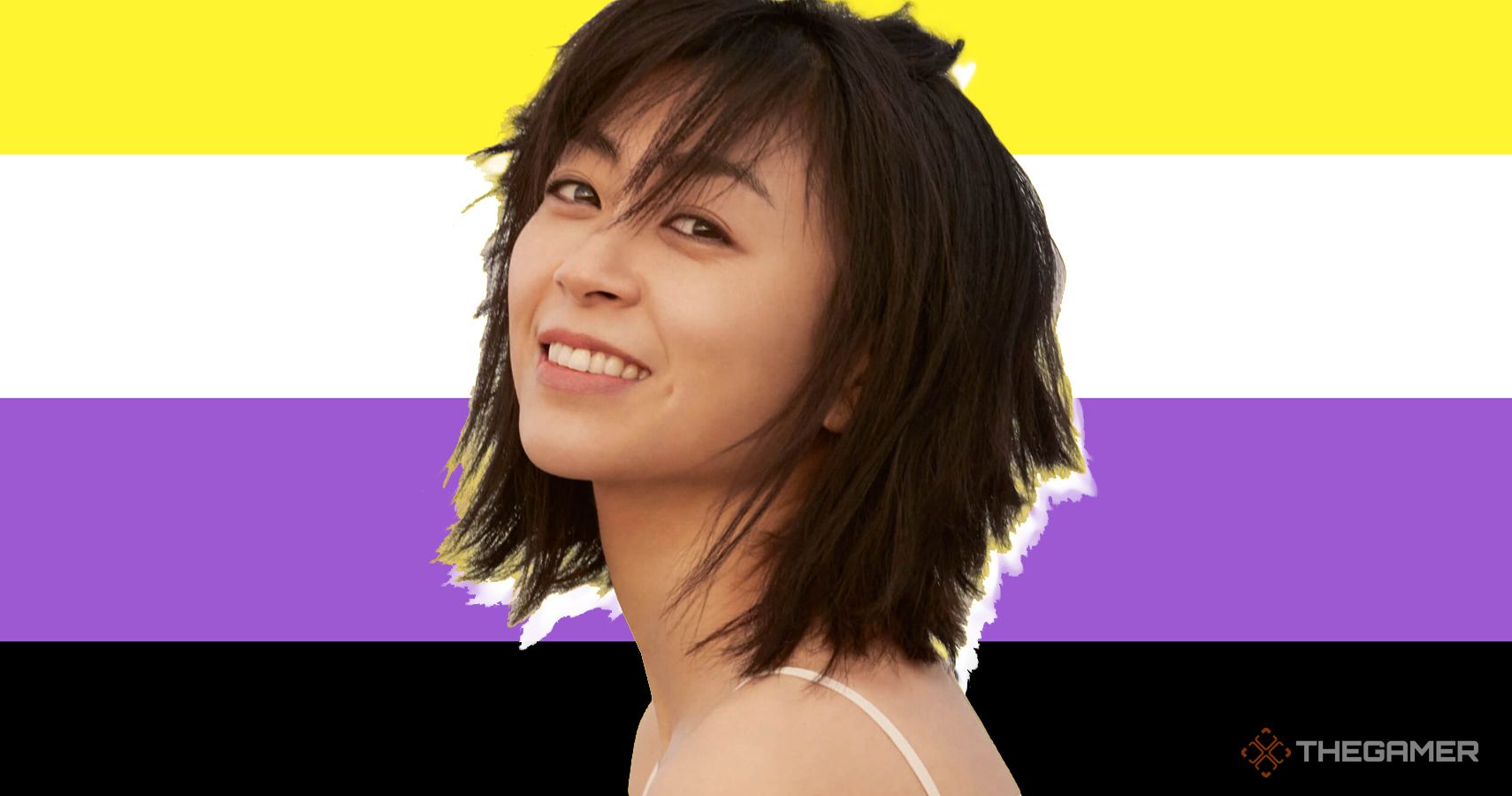This past weekend saw Japanese pop singer Hikaru Utada come out as non-binary, wishing fans and viewers across the internet a happy Pride as they dropped a progressive bombshell that has already begun rippling across the wider industry. This personal revelation was beautifully understated, with Utada choosing the final few days of Pride Month to share themselves with the world, smiling with confidence and not afraid of what others might think.
You can find their personal statement below:
“I’m sick of being asked if I’m “Miss or Missus” or choosing between “Miss/Mrs/Ms” for everyday things. It makes me uncomfortable to be identified so markedly by my marital status or sex, and I don’t relate to any of those prefixes. Every time, I feel like I’m forced to misrepresent myself. I long for an alternative option, one that anybody of any gender or social standing could use.”
Utada concludes their statement by unveiling their own chosen prefix - Mys - which is short for mystery, a poetically fitting descriptor for an artist who has become renowned for their involvement in franchises like Kingdom Hearts and Neon Genesis Evangelion. The singer has become a cultural icon, one many look up to and admire given the creative works they’ve produced over the past few decades. Because of this, their queer identity could really mean something, and that impact is already beginning to surface in the mainstream.
Following the news, a number of major Japanese media outlets began reporting on the announcement, having to explain exactly what non-binary means and how it sits on the gender spectrum. This might seem like a small thing, but it’s likely that readers who have never encountered such terms or have any familiarity with gender non-conforming identities will be hearing about them for the first time. Not only that, it concerns a celebrity they’re likely aware of, having something to relate this new information to in a way that feels welcoming and easy to digest. Of course, there will always be bigots, but as they surface we can keep working to sweep them away.
In the medium of anime and video games, especially from a western perspective, some like to paint Japan as a non-political anomaly. It’s just where they make all the cool stuff, they don’t dare concern themselves with socio-political issues and LGBTQ+ representation because they know better, and needn’t spend their valuable time squabbling over identity politics. Well, I’ve got some bad news for you - queer people live and work in Japan too, one whose gay, lesbian, transgender, and gender non-confirming individuals are still striving for the right to exist and are fighting for equal representation.
Hikaru Utada going public with their identity stands a chance at changing the overall perception, forcing older individuals and politicians to stand up and realise that these identities aren’t confined to the fringes, they can be found in some of the biggest popstars in the country. This challenges the status quo, usurping tired stereotypes and proving that anyone can embrace their chosen identity. It will also help queer, confused kids, giving them a role model and letting them know that a support network is out there to help them learn more about themselves - that’s crucial in a society that far too often punches down on the queer community. Similar conversations happened in the West when singer Demi Lovato also came out as non-binary earlier this year.
Utada’s continued involvement with the likes of Kingdom Hearts and Neon Genesis Evangelion is an oddly fitting accompaniment to their non-binary identity. Both properties attract a huge number of queer fans, many of whom grew up with these games, films, and shows while coming to terms with their own queer labels, ones which would continue to be informed by new pieces of media released well into their adulthood. I’m one of those people, and it’s liberating to learn that perhaps Utada was learning about themselves as I was, using their emotionally resonant songwriting to learn how to accept who they truly wanted to be.
Given the themes and characters at play in both of these media juggernauts, there’s a strong possibility of this being true. Evangelion’s Shinji Ikari is queer-coded to the point of hilarity, while Sora from Kingdom Hearts’ finds himself on a neverending journey of self discovery in search of friends, family, and his own personal happiness. None of these stories are queer by definition, but it’s easy enough to read between the lines. And if we can relate to it, regardless of the creator’s original intention, there’s always value to be found in that.
Hikaru Utada’s non-binary identity only further reinforces these ideas, providing a sense of comfort to those who have accepted themselves while showing society as a whole that LGBTQ+ voices must be normalised and accepted. I feel this could be a huge step forward, and I hope people welcome the progress that emerges in its wake with open arms.

